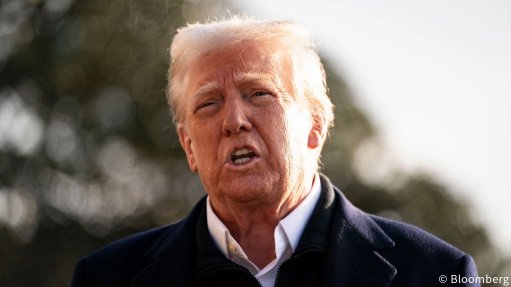
US President Donald Trump
Photo by: Bloomberg
The sweeping tariffs recently imposed by the US are expected to cause significant damage to the global economy, economists noted during a webinar hosted by Fitch Solutions unit BMI on April 15.
BMI chief economist Cedric Chehab explained that US President Donald Trump’s major objectives for imposing the tariffs include, among others, raising revenue, punishing “bad actors” and rebalancing trade and investment in the US.
However, there is room for exemptions and to negotiate down, and it remains to be seen how this will play out, he said.
Countries that are exposed to both the US and China face the risk of a “double whammy”, as both countries’ economies will be impacted by the tariffs, Chehab said.
Recession risks in the US remain elevated. BMI expects a sharp slowdown in the country’s growth to 1.2% this year, from 2.8% last year.
Tariff uncertainty has been pushed back by several months; however, the average effective tariff rate will remain elevated close to about 20%, Chehab indicated.
Tariffs could add about one-and-a-half percentage points to two percentage points to overall inflation.
This, in turn, is expected to weigh on household purchasing power, with savings rates set to continue to rise.
Policy uncertainty and financial market volatility are anticipated to continue to weigh on business sentiment and investment.
Upside risks to BMI’s forecast include stronger first-quarter GDP growth, signing of deals with key trade partners and US-China de-escalation.
Downside risks include few deals being negotiated, weaker first-quarter growth, elevated inflation and labour markets weakening quickly.
There is elevated uncertainty ahead for the US economy, with a range of outcomes possible.
Chinese growth, meanwhile, is expected to come under significant pressure. There is the potential for this to fall to 4%, below the 5% target.
There are also heightened tariff risks across the entire supply chain.
The Chinese currency is expected to come under considerable pressure, owing to the large increase in tariff rates and the downside pressure on the wider economy.
Brent crude is falling amid rising global tariffs, while gold is expected to remain a safe haven. ![]()